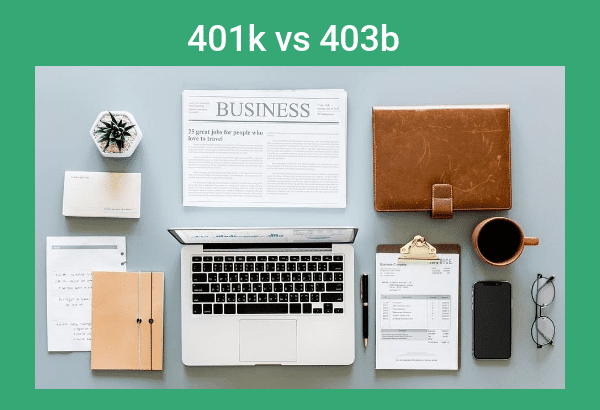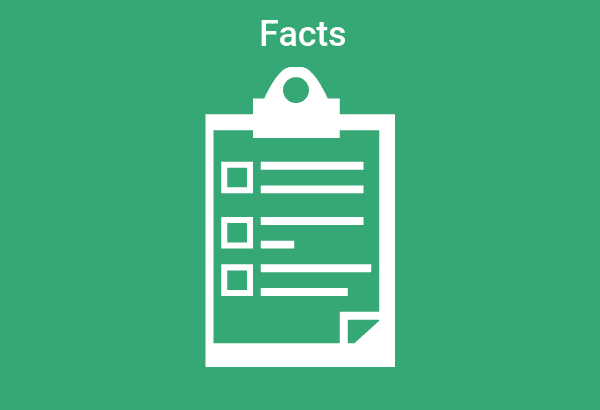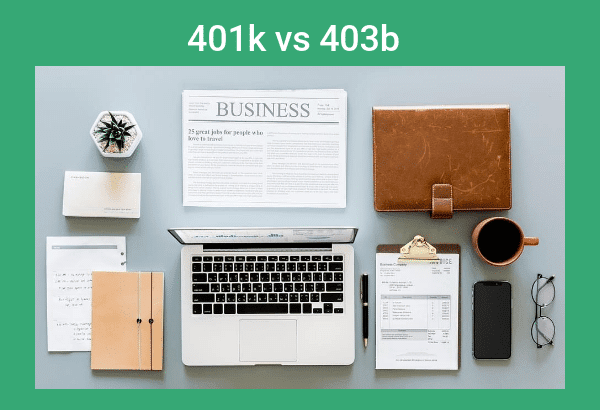401k vs 403b – Which is Better for You?

401k vs 403b
Pitting your 401k vs 403b plans is like comparing Superman to Batman.
While they have specific differences and some shared similarities, one thing about them is the same: they are essential to your future financial security.
If you are over 40, you’re still all set to receive your Social Security nest egg at a reasonable retirement age. If you’re under 30, odds are you either won’t get Social Security or you’re not planning on it.
In fact, don’t plan on Social Security being around if you are under 30. This is not a political issue, this is a simple math issue. A 401k or a 403b are going to be essential in planning for your future financial security.
Now let’s dive into a list of facts you can use as a checklist when assessing 401k and 403b plans for yourself.
401k Facts

401k Facts
This is probably the most well-known out of the two retirement plans. If you work at a for-profit company, more than likely have access to a 401k. Below is a list of things you need to know about the 401k plan before you start investing.
Deduction Taxes and Contribution Limits/h3>
1. You can deduct money invested in your 401k from the current years taxes! Woohoo! Essentially you get to dump the money in there and wait until you retire where you will, presumably, be making less income and so the taxable income on your retirement will be less.
2. There are limits to your contributions to a 401k. For 2018 the limit is $18,500.
However, if you are over 50 you can throw in an extra $6,000 for a whopping total of $24,500 a year. Which begs the question: how do I get your job with that kind of extra income to maximize my 401k contributions?!
Employer Matching
3. Employers can match an employee contribution up to $55,000. Why limit something like this? The IRS said so. But this is the reason for the ERISA reporting regulations. To learn more about ERISA, please keep reading below.
Taking Income and Loans
4. You can start taking income from your 401k once you are 59 ½. If you take it out early, you get dinged 10% and you have to pay the income tax – double whammy.
5. RMD, or the Required Minimum Distribution. This is just odd. You can’t keep your money saved for as long as you want, you are forced to take money out if you are 70 ½ years young. The real kicker is if you don’t take the RMD… get this… the tax man gets 50% of your hard-earned invested money.
6. One of the other things you can do is take a loan from your contribution. However, not every employer lets you do this. And even if they do, there are often restrictions on what you can take a loan out for. Some reasons are for emergencies, health related needs, and even a down payment on a house. The IRS requires that you are limited to borrowing only 50% of your contribution with a max of $50,000 and it needs to be paid back in 72 months (5 years). The exception is if the loan is for your house. Your normal house that you live in, not your lake mansion – you can’t take a loan out for that. And you probably wouldn’t need to if you could afford a lake mansion.
401k Rollover
7. You can take it with you! If you switch jobs, you can do what’s called a ‘roll over’. Roll overs mean you are going put your previous 401k contributions into your new 401k (or 403b, or a 457, etc.).
403b Facts
Probably the least known of the two, a 403b is like a 401k, except only non-profit companies and government employers can participate in a 403b.
1. Same income tax treatment as the 401k plan.
2. Same contribution limits as the 401k plan. But! If you have 15 years of service at the same employer, you can put another $3,000 to the annual limit. It’s called the MAC rule and not every employer offers this.
3. Same employer matching contribution limits as the 401k.
4. Same 401k withdrawal requirements.
5. Same required RMDs as the 401k.
6. Same borrowing/loan rules as the 401k.
7. Same roll over rules as a 401k.
Understanding ERISA
This is a term that pops up quite a bit when discussing 403b and 401k plans: ERISA or the Employee Retirement Income Security Act.
Basically, the ERISA makes sure that the big wigs in a company don’t get some better benefits and perks over the little people.
This mostly applies to 401ks because employers often contribute to 401k plans (we’ll get to the nitty gritty later). This is a regulation and requires reporting, thus increases the costs to operate the 401k. This is why you won’t see a lot of nonprofits (charities, state employees, etc.) have employer matching: cheaper to manage.
The ‘major’ difference between 401k and 403b
The real clincher between the two plans is the investment options. A 401k allows you to put your money basically anywhere (well, anywhere that the plan manager allows).
You like options? 401k is ok. You like individual stocks/securities? 401k is ok.
Contributing Too Much
Can you do both? Be careful.
If you work for an employer that offers a 403b, the plan manager may also allow you to participate in a 401k as well. Or you could have two different employers; one for-profit, one not-for-profit.
You could get into some trouble with the IRS and Uncle Sam if you contribute over the $55,000 yearly limit (combined limit).
For example, you work at for-profit Job A and your totally contributions are $30,000 for your 401k. The payroll department at Job A should catch any extra contributions that are above the limit of the plan. But you also work for Not-For-Profit Job B and your total contributions are $26,000 to the 403b. Ding ding ding ding, you get to pay a penalty! Well, it’s not really a penalty – they¬ don’t call it that. You get taxed twice on the excess contribution and again on the distribution.
It’s very important that you keep track to not go over – the two Jobs don’t know about the other’s plan contributions.
No matter what, do it. You can be a millionaire when you retire.
Regardless of what is offered by your employer, participate in one.
If you’re 25 and you start saving around 400 bucks a month until you retire, you’ll be a millionaire at retirement (assuming some normal returns of >6% annually). Heck, if you have an employer that contributes with a matching contribution to your retirement, you might not have to contribute that full 400 bucks a month. So next time you can’t wait to try that snow pea infused goat milk latte, just get a regular black coffee and put the money you saved into your retirement.
Because by 65, you’ll have enough money to buy all the weird drinks you want.
Future Generations are not ready
According to CNBC, only 31% of millennials have retirement.
Let me repeat that percentage again: only 31% of millennials have money saved for retirement. What is even more frightening? That 46% of millennials have no money in a savings account.
As a result, even among the ‘older’ millennials at 25-34 years of age: 41% have no money in a savings account. That should be terrifying. Terrifying for a number of reasons, but mostly because that’s an entire generation of people who are basically getting beyond the most productive years of their lives where they should be dumping more and more into their retirement.
Not Surprising Millennials have a long way to go

Millennials
Not surprising though. An entire generation of kids has grown up with a me-me-me, now-now-now fast paced, get it quick culture.
While to some degree, it’s not their fault; no other generation in American history has been so devoted and taught to be a consistent consumer.
The reasons for saving for the future doesn’t matter, there is nothing telling them that it will be a problem! But a problem it will be. And if any of the readers here are millennials, you need to start dumping that monthly mocha into a wealth generating instrument for the future.
Lastly, if you ever find yourself at some kind of work party or just hanging out at the newest totally free range vegan smoothie stand with some of your millennial friends and the topic of retirement comes up, you can be Mr./Mrs. Smarty Pants by knowing the difference between a 401k and a 403b.
Because odds are people you know have one or the other and may not know the differences or the similarities. And while you’re downing your salted caramel non-GMO spinach, kalem tofu and low fat cashew milk smoothie, you’ll be able to learn em’ good.










 Psychology
Psychology 
